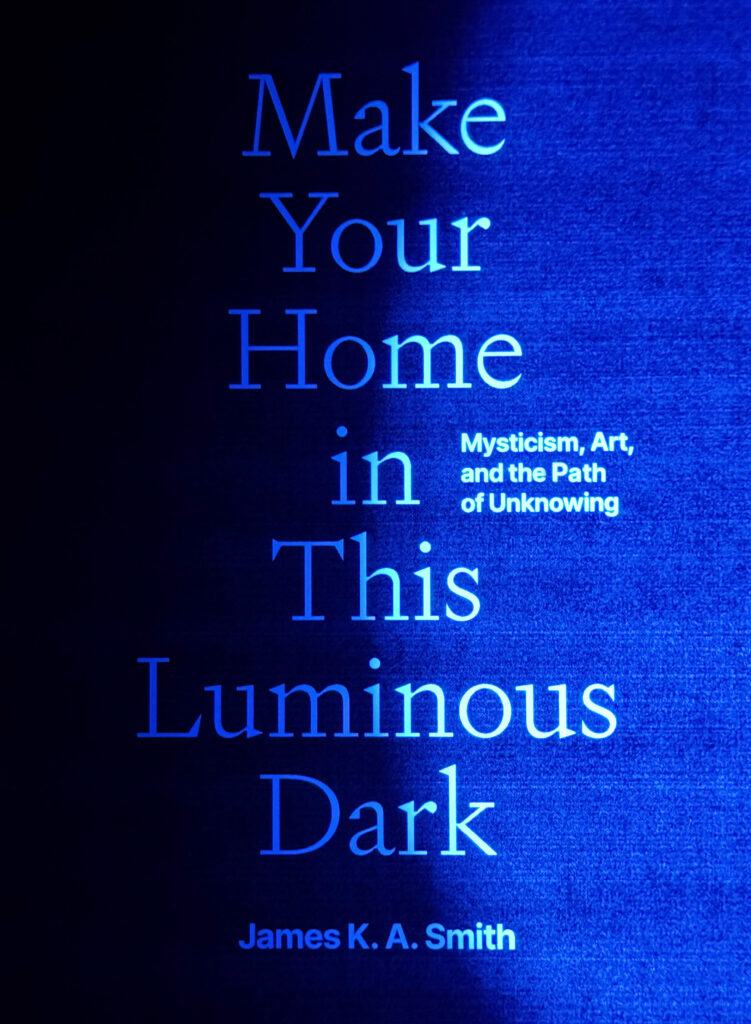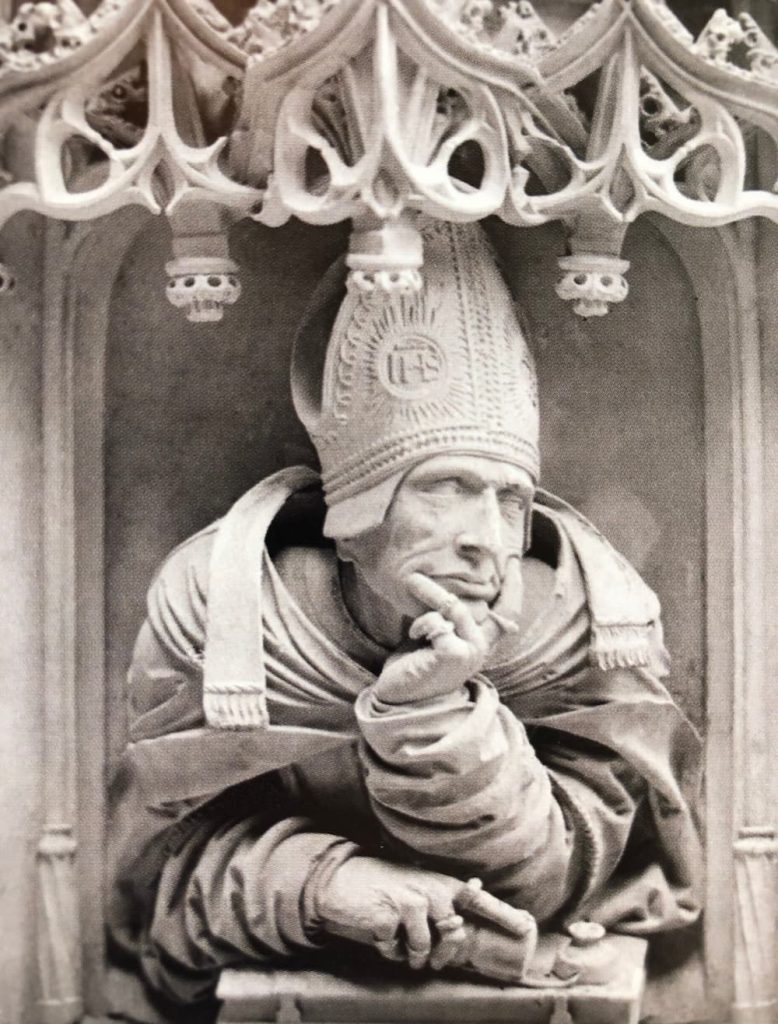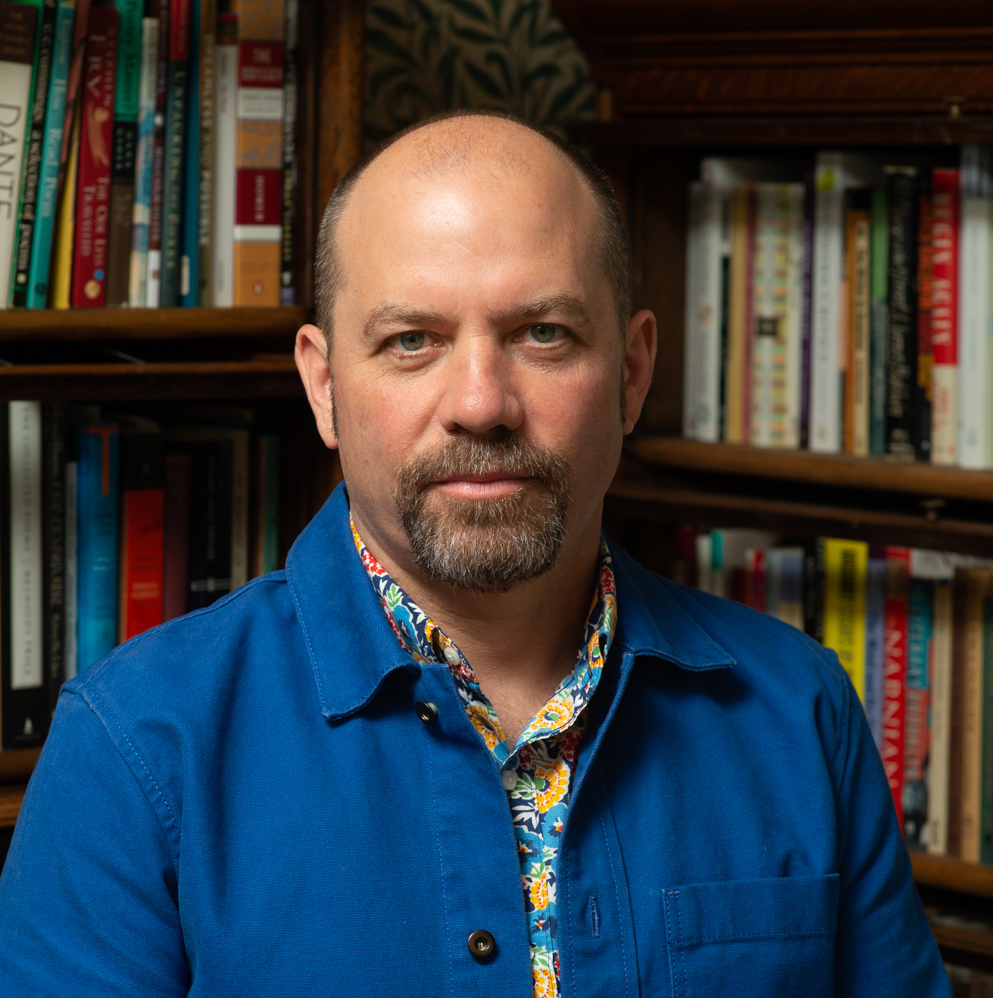“My project is to revive the ancient art of philosophy as spiritual counsel. Philosophy matters only if it teaches us how to live, how to be human.”
—From How To Inhabit Time: Understanding the Past, Facing the Future, Living Faithfully Now

Latest Book – Coming March 2026
Make Your Home in This Luminous Dark
Mysticism, Art, and the Path of Unknowing
A philosopher journeys back to the mystics to learn how to live with uncertainty in the twenty-first century
How do we live when we don’t know what to believe, or who to believe, or how we could even know? In this deeply felt book, philosopher James K. A. Smith explores how radical uncertainty can be liberating, opening us to another way of being. The pain of his own profound uncertainty led Smith to a surprising source for modern consolation: the mystical experiences of St. Teresa of Ávila, St. John of the Cross, and the author of The Cloud of Unknowing. These mystics testify to a deeper truth beneath distraction, anxiety, and fear: love.
Drawing on ancient traditions of contemplation as well as on contemporary novels, poetry, film, and paintings, Smith speaks to the fundamental yearnings that persist in late modernity, including the philosophical quest for knowledge and certainty. He shows us how the gifts of the Christian contemplative tradition and the riches of creative works embody a liberating spirituality that recovers the fullness of being human.
In bringing a philosopher’s questions to the mystics, Smith brings a mystical heart back to philosophy.
Where to pre-order:
Quid Amo
ON SUBSTACK
The enthusiasms, musings, and observations of James K.A. Smith. Mostly books, music, and film. Expect no punditry here. Look elsewhere for outrage.


About James K. A. Smith
James K. A. Smith is a popular speaker and the award-winning author of a number of influential books, including Desiring the Kingdom, How (Not) to Be Secular, You Are What You Love, On the Road with Saint Augustine, and How to Inhabit Time. He is a professor of philosophy at Calvin University. As a scholar, Smith has embraced the vocation of being a “translator” of philosophy for wider audiences. As a cultural critic and commentator, he explores the tensions of modern life, inviting readers and audiences to more intentional practices of faith and flourishing.